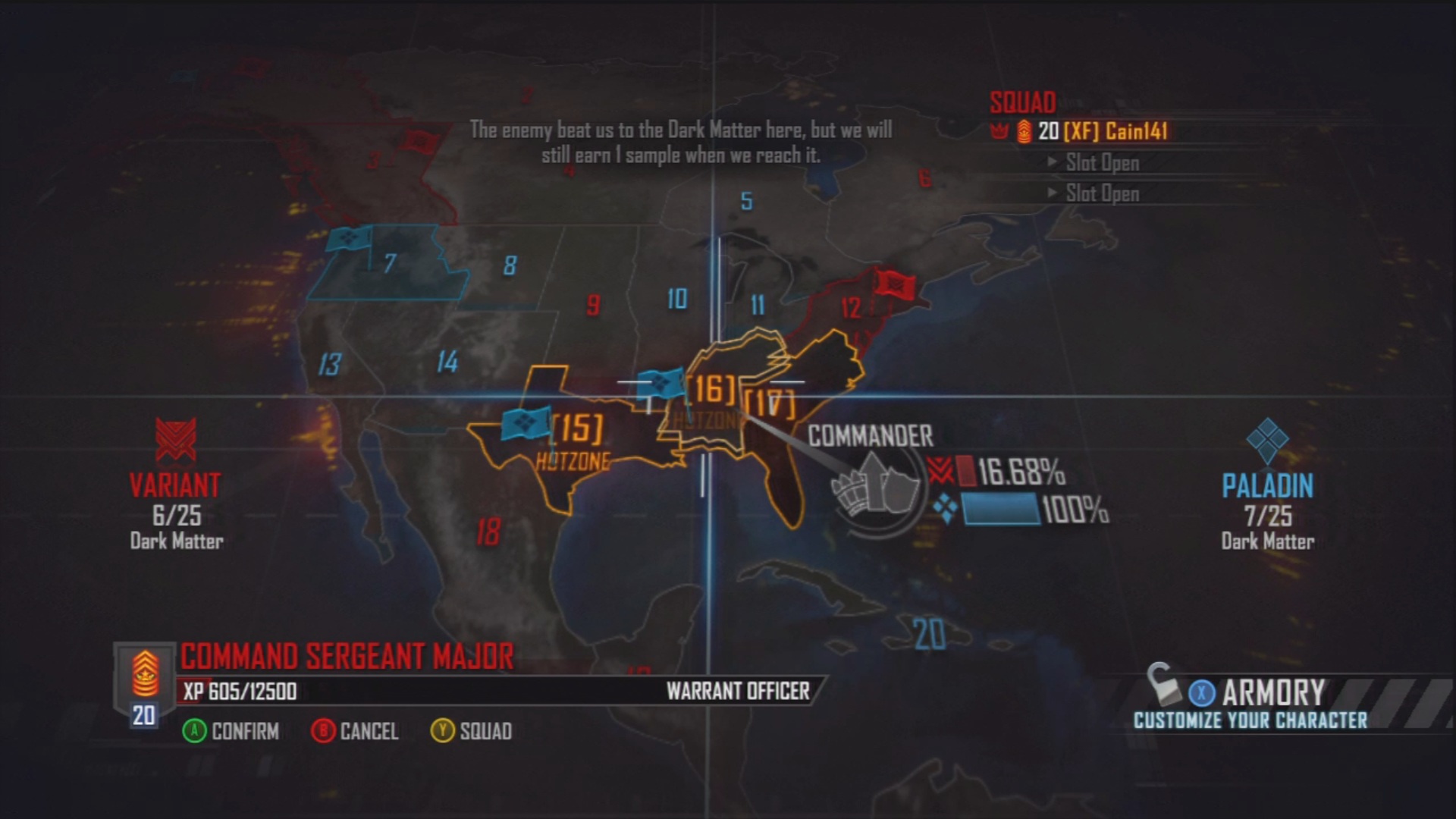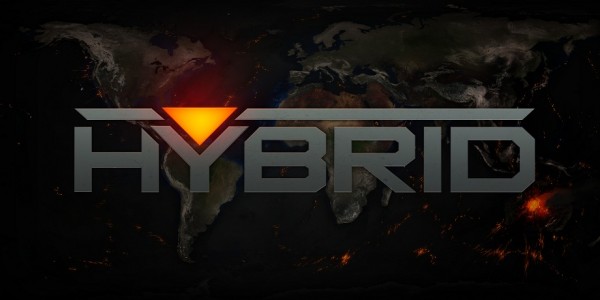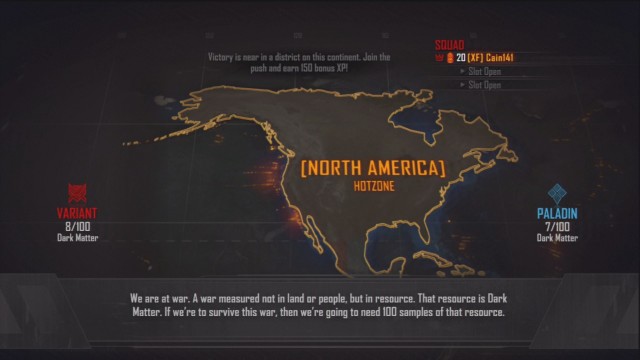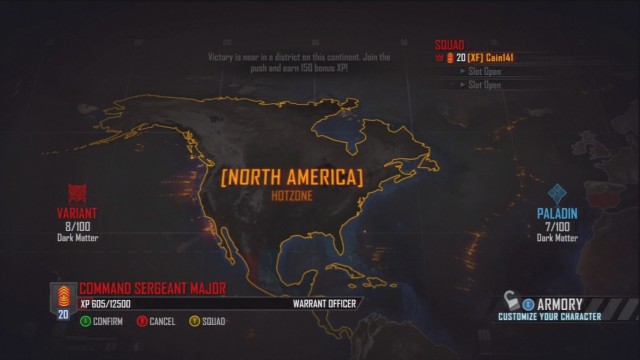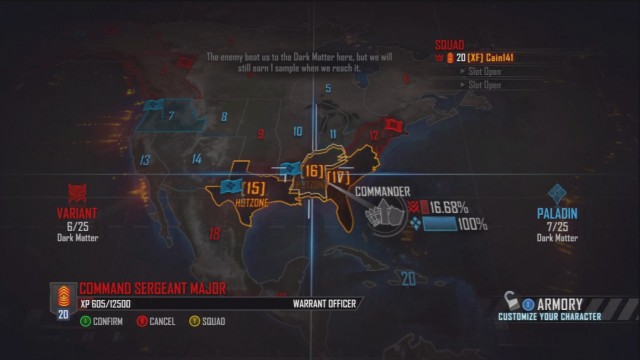Why Hybrid’s Meta Game War Is Broken
Third-person shooter Hybrid released Wednesday with a fairly turbulent launch. For most of the day the servers were unavailable, leading Microsoft to pull the game from the marketplace to prevent players from purchasing something they couldn’t play. As an online only game, Hybrid’s release yesterday reiterated that when the plug is pulled on the servers, the plug is pulled on the game itself. As such, the value of the game relies upon players continuing to purchase and play it. The game will eventually peak and decay until the moment there are no longer enough players to sustain the servers and developer 5th Cell decides to pull the plug causing the game to cease to exist. As such, 5th Cell has done everything they can to keep players interested long term creating a Meta Game involving a war between two factions: Variant and Paladin. The issue is the Meta Game is broken.
Hybrid focuses on three on three squad-based matches. The game adds a unique twist in the sense that ground movement is limited to moving along cover and flipping from one side of a wall to another. The majority of movement occurs in the air. Players can beeline from one cover to the next using their jetpacks and changing their end destination to any visible cover. Players can move up and down or left and right while in the air in order to strafe and avoid incoming fire. Imagine having a string between the two covers that can be pulled in various directions to an extent, but the movement is tethered. The result is a highly unique and interesting flow of combat that Todd will be discussing in depth in his forthcoming review.
In order to keep players interested long term, 5th Cell created a meta game that goes beyond traditional matchmaking. The problem is that meta game is broken, and it could have easily been predicted — and can easily be fixed. The resulting issue is that there are players in Hybrid who care about the meta game, and there are players who don’t care about the meta game. It’s a situation that should have been foreseen leading up to release, which makes some of the design decisions perplexing.
The Meta Game begins when players choose a faction. 5th Cell correctly predicted there could be an issue if one faction was substantially larger than another. As such, the game will offer an XP reward –players will begin at level 5 — to players who chose the faction that currently needs help. This basic touch is a great way to encourage balance among the two teams.
Upon picking a faction players will see the world map as it currently stands. The world has been divided into regions and each of those regions has been divided into zones. Tasked to collect dark matter in order to win the war, players will select a region and then select a zone in which to battle. Upon selecting this zone they will play matches that earn XP for actions that occurred in the match. The more XP a player gets, the faster they help their faction win in the zone they have selected. To add another wrinkle, each zone grants a bonus to a specific perk — such as the assassin perk (weapon damage) or the spec ops perk (cooldowns) — giving players something else to consider when selecting a zone.
Dark matter is earned by completing zones. The first faction to complete a zone receives two pieces of dark matter while the second faction to complete that zone will earn one fragment of dark matter. Upon earning twenty-five pieces of dark matter in a region, the faction will claim that region and is granted an additional five shares of dark matter. The goal for both factions is to be the first to collect one hundred pieces of dark matter. The war is won when this feat is accomplished, and players are rewarded with a cool in-game unlock and an achievement.
There is no way for a faction to communicate with each other, so you must blindly hope the rest of the faction knows what to do. In order to help this along, the game will dynamically assess points that a group is attacking by highlighting them as hot zones. Anyone who attacks one of these hot zones will gain an additional 150 XP. Not only will they then level faster, but theoretically the zone itself should level faster, as that bonus could add up to a substantial amount. These segments will glow red and will be highlighted in the UI.
The issue is there are too many things simultaneously tugging at players and nothing is used in concert. While those that care about the meta game will look beyond the immediate rewards and at the big picture, the disinterested group is going to accidently ruin their fun by seeking immediate rewards. Humans at their most basic level maximize their utility; it’s one of the pillars of economics. As such, we must assume that players will act in a way that benefits them directly: those that care about the meta game will act strategically to push toward victory; those that don’t will seek immediate rewards that benefit only them (XP and perks bonuses).
Due to the structure 5th Cell used for the war, the optimal strategy for victory is to concentrate one’s forces in a single zone that can be realistically captured. If the enemy faction already controls it or seemingly has a lock on it, forces should move to a new location. This being an election year provides the perfect real-world parallel to this situation. The Electoral College, which elects our president, votes as a block based upon which candidate won the popular vote in each state. While this binary system provides an outcome of either Victory or Defeat and each state is weighted based upon population, it shows a strategic lesson that needs to be understood in Hybrid. If you are polling at 15% in Texas and 48% in Ohio, for example, then you should put all your assets in Ohio where you can reasonably expect to contend for victory. Change those percentages to points toward victory and you have the same situation seen in Hybrid. If the red team has 80 points in Texas and 48 points in Ohio and the Blue team has 15 and 48, respectively, blue should move all its forces to Ohio. Ironically red team should also move as it can cap Texas later uncontested. This is a simplified example, but it holds true even when extrapolated to multiple zones and regions.
The fastest way to acquire one hundred dark matter is to capture zones first and thus capture regions and receive a potentially devastating dark matter bonus. The first person to claim each region receives a 2:1 differential over their opponent. It allows a team to not only gain an extra dark matter but protect their lead by preventing the enemy from gaining an additional dark matter. Under this strategy, no one should ever claim an already claimed territory unless it is needed to complete a region for the bonus.
This is where the issue comes into play. Hybrid frequently encourages players to take zones that have already been claimed. At this point anyone thinking strategically leaves the zone and those players seeking the XP bonus continue to attack a region that hurts the team. Yes, acting sub-optimally hurts the team. There is an opportunity cost. Every match a player plays in one zone is time they could be spending playing matches acquiring another zone, and the bonus hot zone XP is being applied to a wasted zone, preventing the capturing of unclaimed territory. This isn’t to mention the players that haphazardly select regions to acquire bonuses to their attributes they want to level.
The hot zones are based upon player input. Which would be fine if every player was strategic. The issue is there are a vast number of players who don’t think strategically or don’t care about the meta game. As such, anyone who does care about the meta game will be faced with no ability to actually affect the tide of the war. Assume there are 10 thousand players on each side, many of them uninterested in the meta game. How much impact can one player actually have? Not nearly enough to inspire that player to invest himself in the tug-of-war.
5th Cell should have realized during development that while some players would care about the meta game, many would not. As such, the team should have used the in-game bonuses in a way that encouraged strategic behavior — not prevent it. The hot zones could still be dynamic, but they should recognize basic principles: the moment a region has been captured by the opponent it should no longer be eligible for a hot zone. The moment a team builds a lead of 50 it should be deprioritized unless no other potential hot zones exist. Each region could have been a single power-up, preventing the haphazard attack from players seeking specific bonuses to their in-game power ups. That would have encouraged North American players to look at the rest of the map and for a hot zone to be live for each team in each region for each power up at all times.
Utilizing this system, instead of having strategic actors and selfish players, the selfish players would be acting strategically, albeit accidentally. In essence, all players would get the experience they’re looking for. Instead we’re left with a broken system that caters to but a portion of the user base, a system that is likely to result in the premature pulling of the plug. Hopefully 5th Cell realizes its folly and gets things turned around before the prongs are loosened any further from the outlet.

